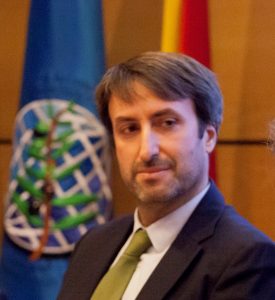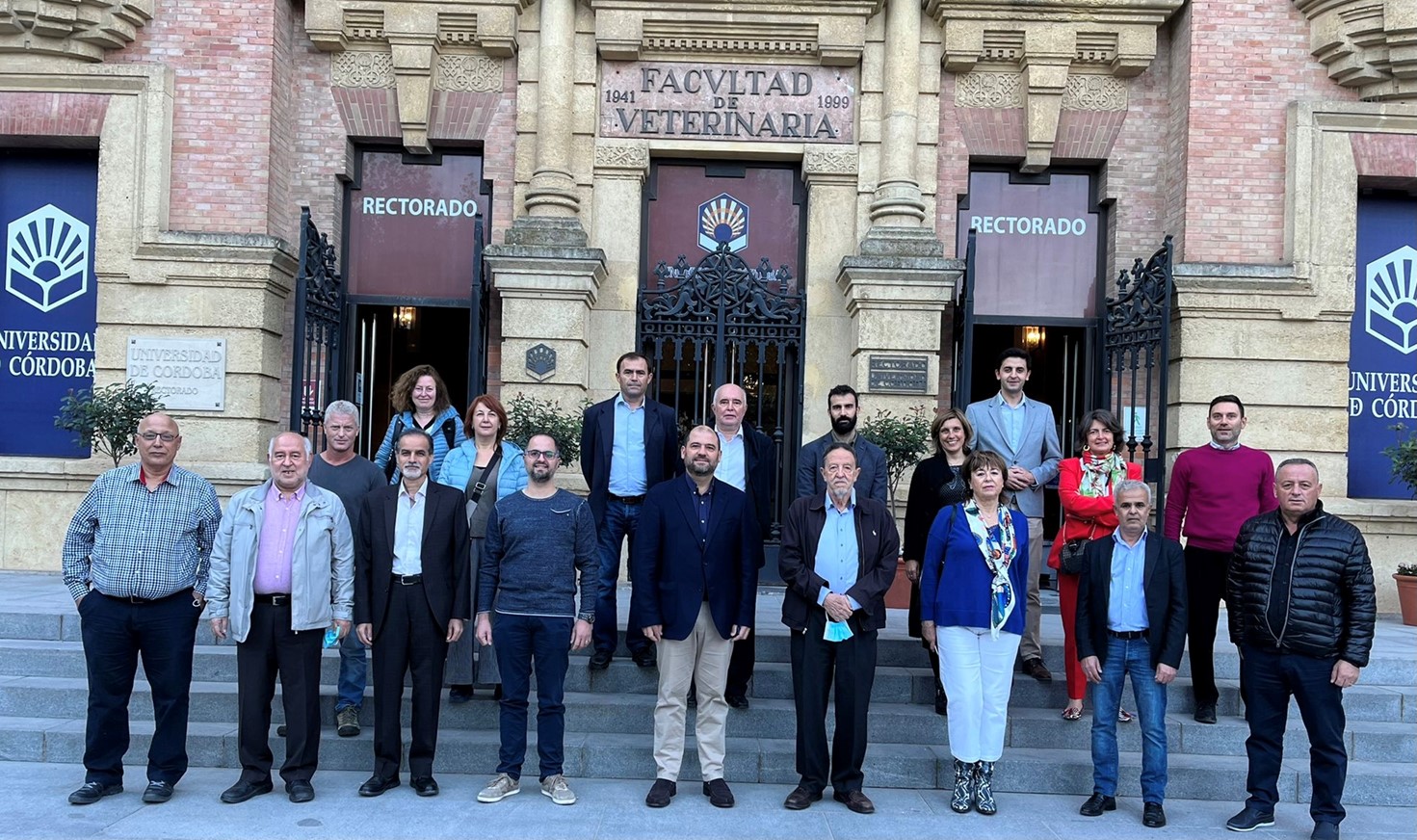 The International Olive Council (IOC) has gathered representatives from its member-countries at the University of Córdoba (UCO) for a workshop from 25 to 29 October 2021. The aim of the workshop is to strengthen and harmonise a certification system for olive plant trees so that producers and farmers can guarantee that the vegetable material they work with is true to type and healthy. The workshop will address one of the most important issues facing the olive sector and therefore also our Institution today.
The International Olive Council (IOC) has gathered representatives from its member-countries at the University of Córdoba (UCO) for a workshop from 25 to 29 October 2021. The aim of the workshop is to strengthen and harmonise a certification system for olive plant trees so that producers and farmers can guarantee that the vegetable material they work with is true to type and healthy. The workshop will address one of the most important issues facing the olive sector and therefore also our Institution today.
The production of olive plants without certification may result in the dissemination of pest and diseases and mistaken varieties that do not meet requirements entering plantations.
The workshop was opened by Enrique Quesada Moraga, the Vice-Rector for Research and Territorial Development of the UCO, and Jaime Lillo López, Deputy Executive Director of the IOC. They were joined by Luis Rallo Romero, the coordinator of the IOC network of olive germplasm banks; Abdelkrim Adi, the Head of the Olive Growing, Olive Oil Technology and Environment Unit of the IOC; Catarina Bairrao Balula, the Head of the Technical Cooperation and Training Department; Pablo Morello Parra, the Head of the Olive Oil Technology and Environment Department; and officials from the IOC olive germplasm banks.
The meeting was held collaboratively, thus intensifying links between the IOC network of banks through the True Healthy Olive Cultivars (THOC) project and the World Catalogue of the main genetically authenticated olive tree varieties.
As it is well known, the IOC has been promoting a network of banks containing olive genetic material since 1994. These banks aim to preserve the heritage of olive varieties grown in countries around the world.
The IOC network currently includes 23 banks in as many countries and three international collections (Cordoba, Spain; Marrakech, Morocco; and Izmir, Turkey) that preserve all the varieties of the network located in the different countries in the three different climatic zones.
The THOC project intends to provide authenticated and healthy initial material of the main commercial varieties of each country on the IOC network of germplasm banks.
Authentic and healthy varieties will be provided to banks to be preserved as initial material in the corresponding isolated conservatories.
This step is the starting point for certification protocols for nursery stock.
The certification system aims to ensure that varieties traded internationally are authentic and free from pathogens, in line with the recommendations and regulations issued by the European and Mediterranean Plant Protection Organization (EPPO) and the European Union (EU).
ATELIER : SYSTÈME DE CERTIFICATION DES PLANTS D’OLIVIER
Réseau de banques de germoplasme du Conseil oléicole international (COI), Projet True Healthy Olive Cultivars (THOC) et Catalogue mondial des principales variétés d’olivier génétiquement authentifiées
Cordoue (Espagne), 25-29 octobre 2021 – Le Conseil oléicole international (COI) a réuni des représentants de ses pays membres à l’Université de Cordoue (UCO) pour un atelier qui s’est déroulé du 25 au 29 octobre 2021. L’objectif était de renforcer et d’harmoniser le système de certification des oliviers afin que les producteurs et les agriculteurs puissent garantir que l’authenticité et l’état de santé du matériel végétal qu’ils cultivent. Cet atelier a ainsi abordé l’une des questions les plus importantes auxquelles est confronté le secteur oléicole aujourd’hui et, par conséquent, notre institution.
La production de plants d’olivier sans certification peut entraîner la dissémination de parasites et de maladies et l’introduction dans les plantations de variétés non vérifiées et qui ne répondent pas aux exigences.
L’atelier a été ouvert par Enrique Quesada Moraga, vice-recteur chargé de la recherche et du développement territorial de l’UCO, et Jaime Lillo López, Directeur exécutif adjoint du COI. Ils ont été rejoints par Luis Rallo Romero, coordinateur du réseau des banques de germoplasme oléicole du COI ; Abdelkrim Adi, chef de l’Unité Oléiculture, Oléotechnie et Environnement du COI ; Catarina Bairrao Balula, chef du Département Coopération technique et Formation ; Pablo Morello Parra, chef du Département Oléotechnie et Environnement ; et par des responsables des banques de germoplasme oléicole du COI.
La réunion s’est déroulée en collaboration, ce qui a permis de renforcer les liens entre le réseau de banques du COI dans le cadre du projet « True Healthy Olive Cultivars » (THOC) et du Catalogue mondial des principales variétés d’oliviers génétiquement authentifiées.
Le COI promeut depuis 1994 un réseau de banques dans lesquelles est conservé du matériel génétique oléicole. L’objectif de ces banques est de préserver le patrimoine des variétés d’oliviers cultivées dans les pays du monde entier.
Le réseau du COI est actuellement composé de 23 banques dans autant de pays et de trois collections internationales situées dans trois zones climatiques différentes (Cordoue – Espagne, Marrakech – Maroc, et Izmir – Turquie) dans lesquelles sont conservées toutes les variétés du réseau.
Le projet THOC vise à fournir au réseau des banques de germoplasme du COI du matériel initial authentifié et sain des principales variétés commerciales de chaque pays.
Les variétés authentifiées et exemptes de maladies et de parasites seront fournies aux banques pour être conservées comme matériel initial dans des conservatoires isolés.
Cette étape est le point de départ des protocoles de certification pour le matériel de pépinière.
Le système de certification vise à garantir que les variétés faisant l’objet d’un commerce international sont authentiques et exemptes d’agents pathogènes, conformément aux recommandations et règlements de l’Organisation Européenne et Méditerranéenne pour la Protection des Plantes (OEPP) et de l’Union Européenne.









